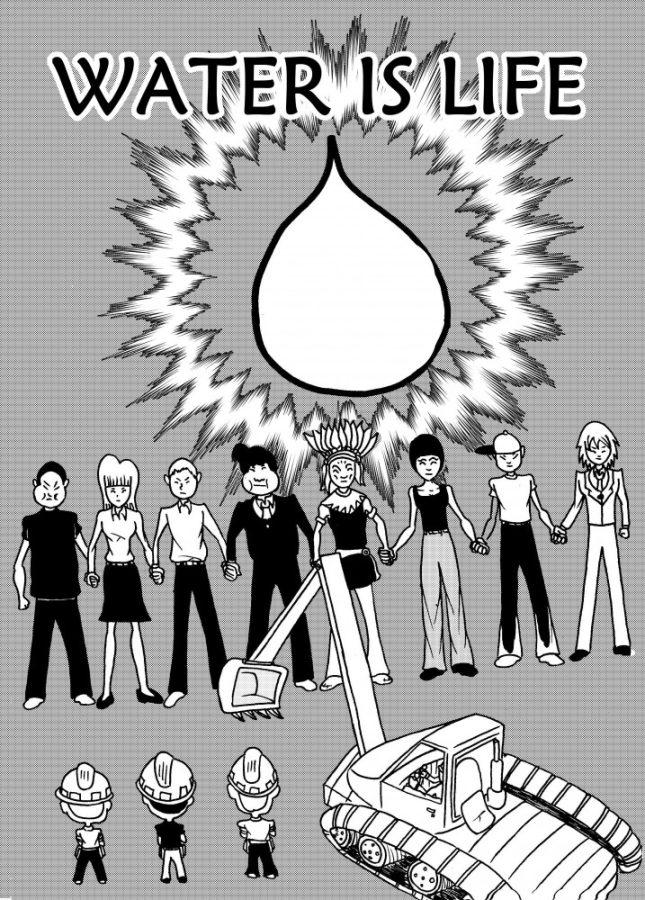People from different walks of life banded together on the UA mall to speak out about the repercussions of the Dakota Access Pipeline.
The pipeline is reported to go under Lake Oahe, a reservoir on the Missouri River. This area is also occupied by the Standing Rock Sioux Tribe.
I had the good fortune of being able to witness Thursday’s rally on the UA mall. Native Americans from the community took to the stage to voice opposition to the pipeline. They graced the campus with cultural performances including instrumental and vocal music accompanied by dancing. At one point, they had a huge circle of people joining hands to stand in solidarity with the Standing Rock Sioux Tribe.
Seeing people from such a wide variety of backgrounds unite against something taking place hundreds of miles from here made me realize that the Dakota Access Pipeline isn’t just a Native American problem, it’s a human problem—a problem that will affect the people of Arizona for generations to come.
RELATED: Stand in solidarity with Dakota pipeline protesters
Completing the pipeline runs the risk of allowing oil into the waters of Lake Oahe. It’s not so much if it happens but when it happens. When that happens, it will cause a huge environmental disaster. The people who live there rely on the clean waters of Lake Oahe to live, and the wildlife won’t do well when it’s covered in oil.
In addition to the environmental problems that this project presents, there are also grievous social injustices taking place. These wrongdoings aren’t just a problem for Native Americans but for everyone else as well.
I had the chance to talk to J Carmen Tirado-Paredes, a PhD candidate in teaching, learning and sociocultural studies here at the UA, about his thoughts on the rally.
“Taking [our native people’s] rights away or not [consulting them] … those are big issues that affect everyone, you know, because that’s happening over there now, and tomorrow it might happen here in Arizona.” Thrado-Paredes said.
If the oil companies succeed in stepping on the rights of Native Americans in North Dakota, who’s to say they won’t step on the rights of people here in Arizona?
The rally also criticized corporate greed and its of value money over the people. That should never be the case as we owe it to the next generation to preserve this world as best as we can so that they can enjoy it as we have.
RELATED: PRISONER STRIKE SOLIDARITY PROTEST
I saw children at the rally holding up hand-made “Kids Standing With Standing Rock” signs. Another poster said “United to neutralize big energy greed and destruction.”
The number of people in attendance along with the diversity of those people is a testament to how universal this issue is—not just for the Native Americans being directly affected in North Dakota.
Another thing that fascinated me was the deep, rich culture that the Native American protesters displayed. Some were clad in colorful clothing or playing the drums and singing. A similar culture is being threatened in the north, and southern tribes here in Arizona greatly value solidarity with their family. It’s impressive how Native Americans from different tribes came together to support their brothers and sisters.
I spoke to UA senior Jordan Tsosie who, when asked why so many tribes all over the country support Standing Rock said, “We’re all together. We’re all Native American and they’re our brothers and sisters. We have to stay together [because] there’s not many of us.”
We are all brothers and sisters. So I would like to call on everyone, because the Dakota Access Pipeline is not just a Native American issue, it’s a human issue.
Follow Andrew Alamban on Twitter.









